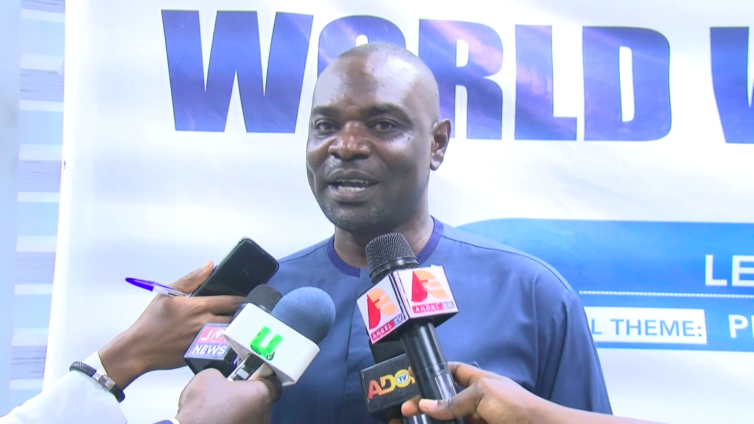Ghana is witnessing a concerning drop in water quality attributed to land use activities, prompting urgent calls for collaborative action.
Human activities such as illegal mining, fishing with harmful chemicals, and improper waste management are contributory factors to the depreciation in water quality.
Recent statistics reveal a significant decline in the quality of the nation’s water resources, plummeting from 86 percent to 58.8 percent.
Speaking to JoyNews, the Executive Director of the Water Resource Commission, Dr Bob Alfa, highlighted the reasons for this decline in water quality.
He explained, “Ghana’s water resources are deteriorating in terms of quality. We are experiencing degradation of our water bodies due to land use activities. However, we still have some parts of Ghana where we have quite a lot of good water resources. So, for some areas, we have good water quality, and for some areas, we have poor water quality. That is the situation now.”
Dr Alfa emphasised that Ghana had good water resources in previous years in terms of percentage, but due to the activities of illegal mining, the nation started losing some of its river bodies.
He stressed the need to address destructive land practices to protect Ghana’s dwindling water resources.
“If we are able to combat galamsey and improper waste disposal, I believe we can restore our water quality back to the previous level of 86 percent,” he added.
He clarified that Ghana is within the borderline of being a water-secure country but has been classified as a water-vulnerable country. He warned that if the nation makes mistakes, it could become water-insecure.
Dr Alfa suggested possible solutions to curb the situation, emphasising the need for proactive measures aimed at reversing this trend.
He called for collaboration among stakeholders to ensure a sustainable future for all.
“We have to collaborate with other agencies – such as the Ministry of Lands and Natural Resources, the Environmental Protection Agency (EPA), and other relevant bodies – to eliminate the menace of galamsey,” he said.
The Executive Director of the Water Resource Commission acknowledged that the fight against illegal mining would take time but urged all stakeholders to join forces in this battle.
Additionally, he identified bad fishing methods, such as using chemicals, and improper waste disposal as significant challenges.
Dr Alfa mentioned ongoing efforts to tackle these issues, including collaborating with the Ministry of Fisheries on fish farming and working with local assemblies to address waste disposal problems.
He reiterated his organisation's commitment to collaborating with all relevant agencies to minimise the impacts of these detrimental activities.
Latest Stories
-
NPP gov’t didn’t add a km of tarred road in Bodi in 8 years – Samson Ahi
37 minutes -
Volta Development Forum applauds appointment of Dr Asiamah as Governor
49 minutes -
Starbucks axes 1,100 jobs in bid for US turnaround
54 minutes -
77th anniversary of Christiansborg Crossroads Shooting to be commemorated on Feb 22
1 hour -
16 arrested in Kumasi for breaching environmental safety bye-laws
2 hours -
Deputy Finance Minister nominee calls for non-partisan approach to DDEP payments
2 hours -
Interior Ministry renews curfew in Bawku, imposes weapons ban
2 hours -
Hindsight: Resetting the NSA
2 hours -
Energy Minister meets with IPPs, power sector agencies on strategies to ensure reliable power supply
3 hours -
Interior Ministry lifts curfew on Saboba and Bimbilla
3 hours -
I’ll take good decisions about who becomes a citizen – Deputy Minister-designate for Interior
3 hours -
Women and youths of Anloga Municipal appeal for Joseph Agbeko Kpogo as MCE
4 hours -
Anloga MCE hopeful promises to build a permanent party office for constituency
4 hours -
Let us plan our lives without foreign aid – Deputy Finance Minister-designate
4 hours -
Lighthearted: Customer service in the negatives – my inn experience
4 hours

